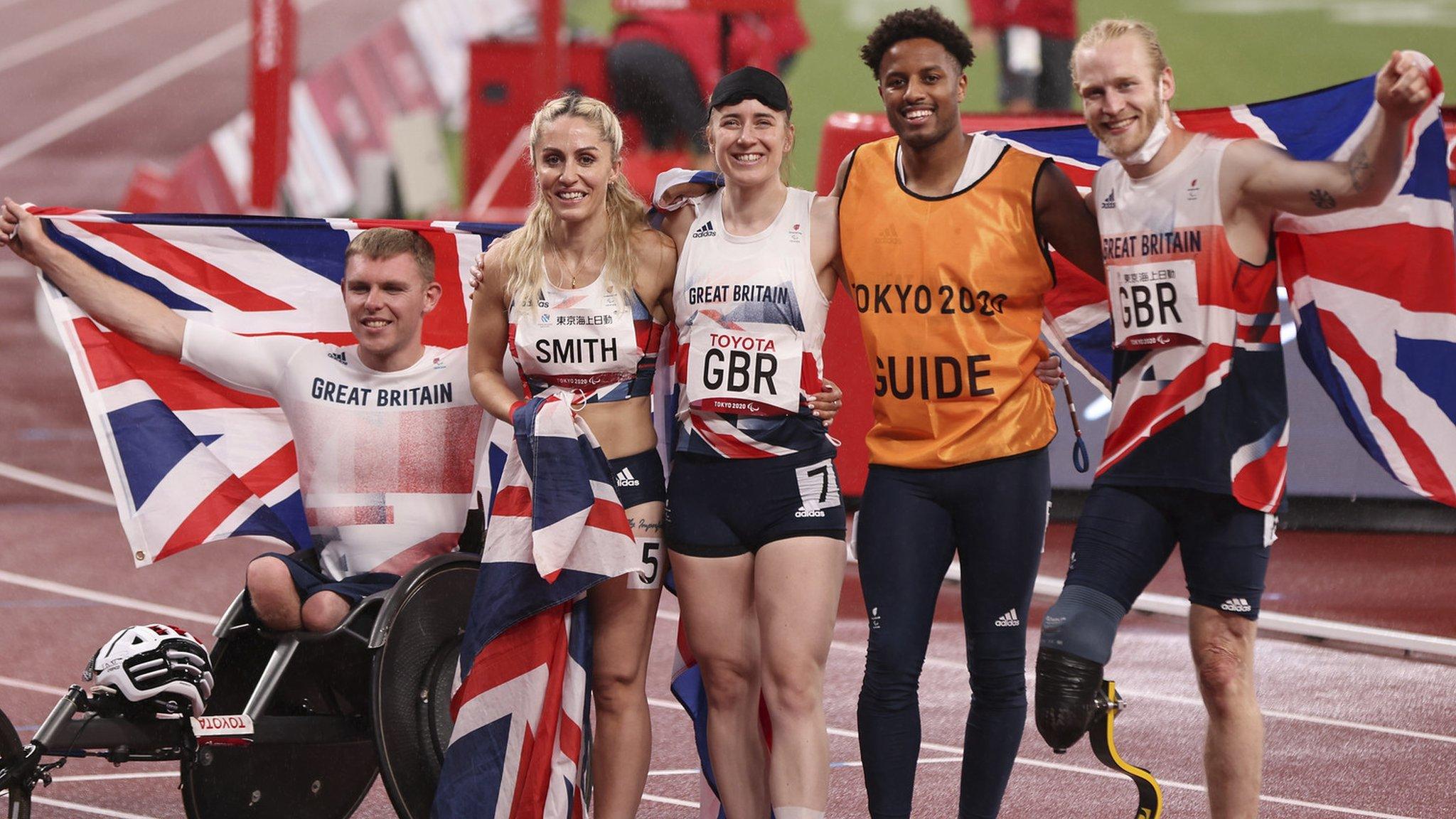Phoebe Paterson Pine: Gold medallist archer has been on 'quite a journey'
- Published
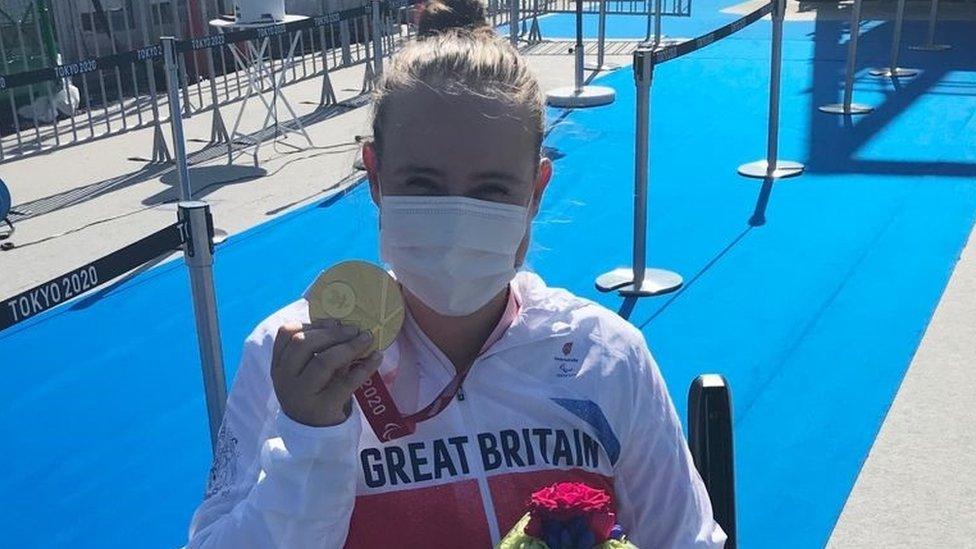
Phoebe Paterson Pine said she couldn't have imagined winning gold in her wildest dreams
The mother of a Paralympic gold medal-winning archer says her daughter has shown incredible resilience on her way to glory in the Tokyo games.
Competing in her first Paralympics, Phoebe Paterson Pine, 23, from Gloucestershire, won the women's individual compound final.
Her mum Alison said she was proud and her daughter deserved her success.
"She's had various health problems over the past few years. She's been on quite a journey," she said.
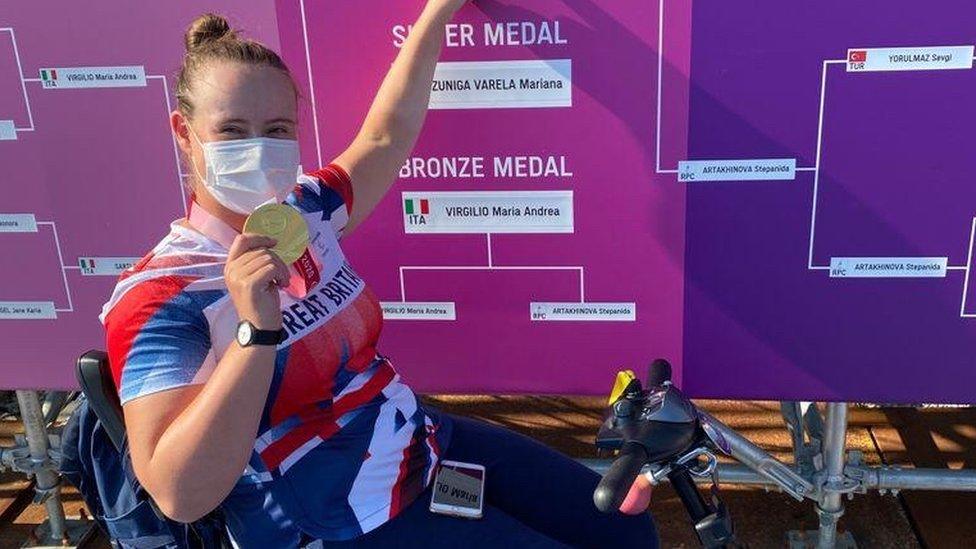
The 23-year-old from Cirencester first tried archery while on holiday in 2012 and then joined her local club
Ms Paterson Pine has spina bifida and went into her debut games ranked world number 15.
"I'm incredibly proud. She's worked so hard to get to this point and she deserves it, she really does," Alison said of the Cirencester athlete.
"We're all very tired here but it's been an amazing night. She trains four or five times a week, she's competing most weekends and she's also part-way through a degree," she added.
"She's just incredibly resilient. Last night's result shows that."
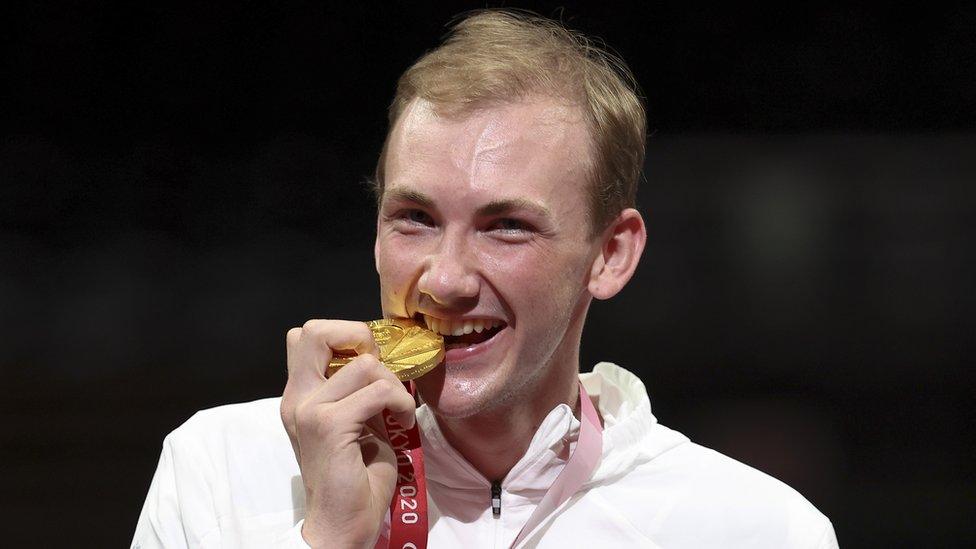
Piers Gilliver won gold in the men's epee and also added silver and bronze medals to complete an impressive haul in Tokyo
Fellow Gloucestershire Paralympian Piers Gilliver, 26, said he was getting used to being a gold medal-winner after his success in wheelchair fencing.
Gilliver, from Drybrook in the Forest of Dean, finished the games with a complete set of medals after winning gold, silver and bronze.
"There's a different skill to being good at fencing and actually being able to win," he said.
"To deal with the pressure, the environment, and having not been in that competition environment for almost two years, I really wasn't sure how I would deal with it until I got there."
The fencer, who has Ehlers-Danlos syndrome and trains at the University of Bath, said the games gave him "a sense of being part of something bigger".
"I think one of my favourite things about the games is that real camaraderie you get from being part of the GB team," he said.

Follow BBC West on Facebook, external, Twitter, external and Instagram, external. Send your story ideas to: bristol@bbc.co.uk , external
Related topics
- Attribution
- Published30 August 2021
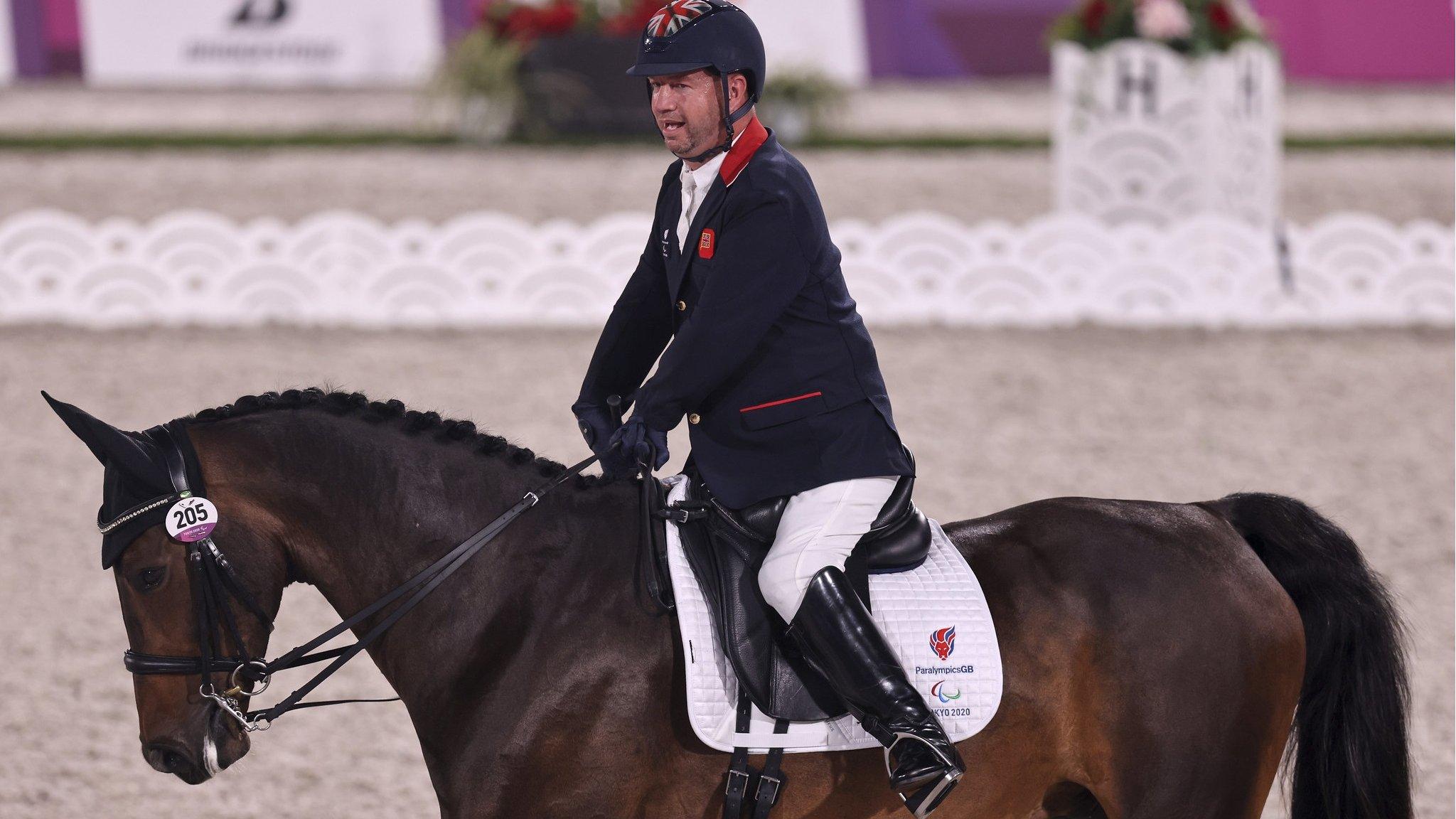
- Attribution
- Published5 September 2021
